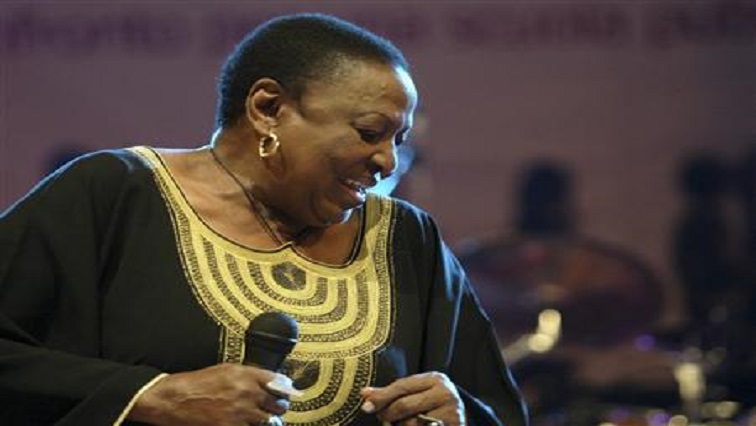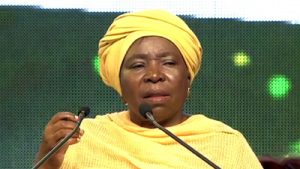Minister in the Presidency for Women, Youth, and Persons with Disabilities, Dr Nkosazana Dlamini-Zuma, says today’s generation should emulate the commitment of Dr Miriam Makeba in fighting the apartheid government in order to overcome challenges in a democratic South Africa.
Dlamini Zuma delivered the inaugural Dr Miriam Makeba lecture at UNISA in Pretoria on Sunday.
The world-renowned Makeba was an anti-apartheid activist who spoke out against the regime through her music globally.
She is also one of South Africa’s biggest musical exports.
Makeba was bestowed an honorary doctorate by the University of South Africa in 2002.
The international icon was again honoured by the university when it renamed its refurbished concert hall after her in 2009.
The inaugural memorial lecture has been described as long overdue.
Affectionately known as Mama Afrika, industry peers such as Abigail Kubheka say that nickname was no mistake.
“It’s an honour and a privilege. I’m very emotional to be here today because I am standing on the shoulders of a mighty woman, Imbokodo (Rock). For 65 years in this industry, I am still here because of this woman. I am who I am, what I am because of Zenzile Miriam Makeba,” adds Kubheka.
Makeba was the first black musician to leave South Africa due to apartheid.
This saw many others following in her footsteps.
One of them, Sipho “Hotstix” Mabuse says, “Mazi said you must eat healthy food and would cook for us. But was special for me, she had brought musicians from France and said to me these [are] brilliant musicians that you should be working with. I was shaking.”
“You know Teres Quincy Jones in the world, there’s Caiphu Semenya in the world, I didn’t know there was Sipho Mabuse somewhere, until she said I’d like you to write a song that I can sing with you. I was shaking and said you could have asked Quincy to do this, she said I’ve been in America for too long. I want to hear it from home, and you carry that voice,” says Mabuse.
Through her music, she became a civil rights activist, calling for an end to apartheid while an exiled singer.
Her outspokenness against apartheid saw her banned in her own country.
This led to her failing to bury her mother in 1960.
Dlamini-Zuma says her commitment to black consciousness contributed immensely to the freedom of South Africans.
“She didn’t believe she could be free if there was any African anywhere, on the continent or in the diaspora that was not free. It becomes crystal clear that this was not music for music purposes, this was a consolidated group of creative liberators driven by an unflinching commitment to black consciousness,” adds the Minister.
In 1964, Makeba boldly addressed the United Nations General Assembly where she called for world leaders to act against the imprisonment of political leaders.
Dlamini-Zuma says this should serve as an inspiration to today’s generation.
“Her songs, and her work, were her work effective. This is the kind of inspiration that should be found in our schoolbooks. It’s the kind of message that should reach the ears of our youth.”
The inaugural memorial lecture coincides with the university’s 150th celebration, as well as the 60th anniversary of Miriam Makeba’s rousing speech at the United Nations General Assembly.






